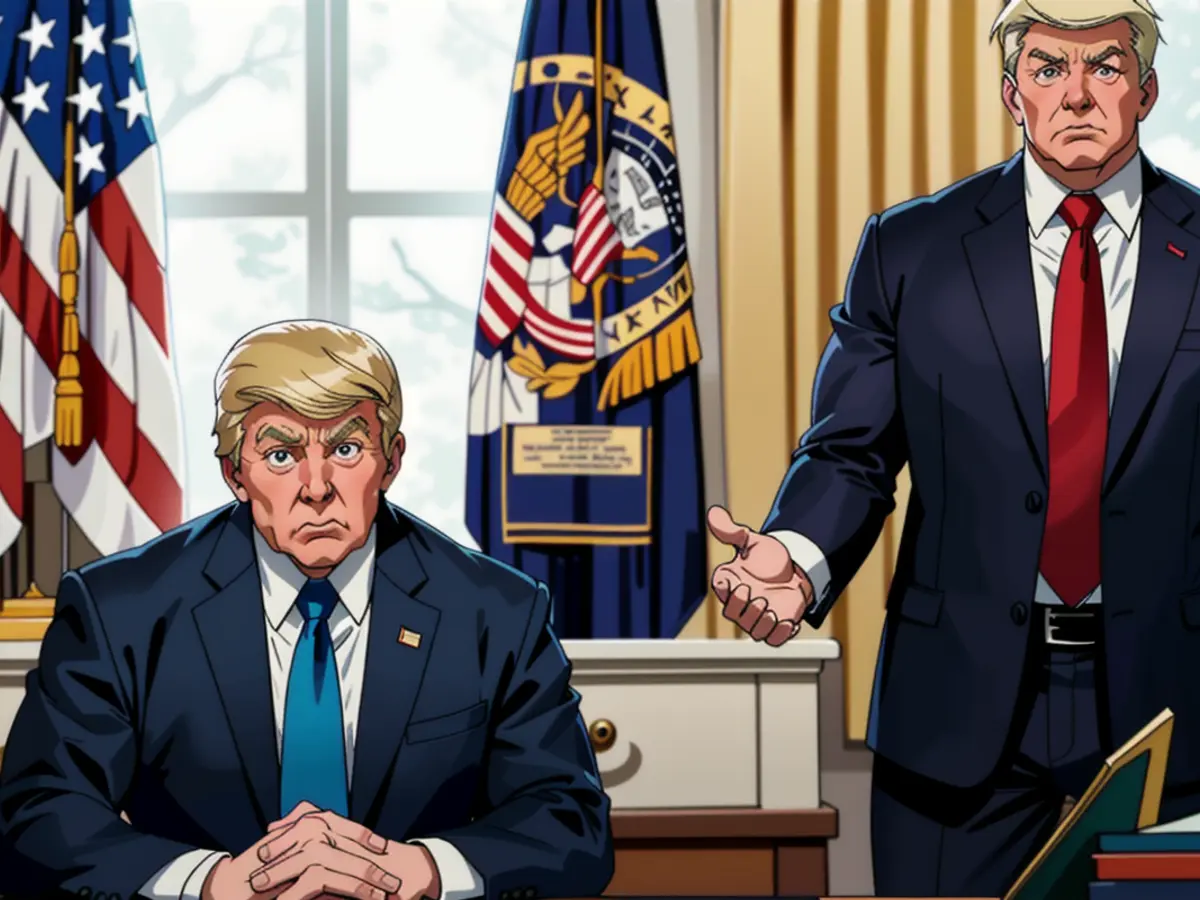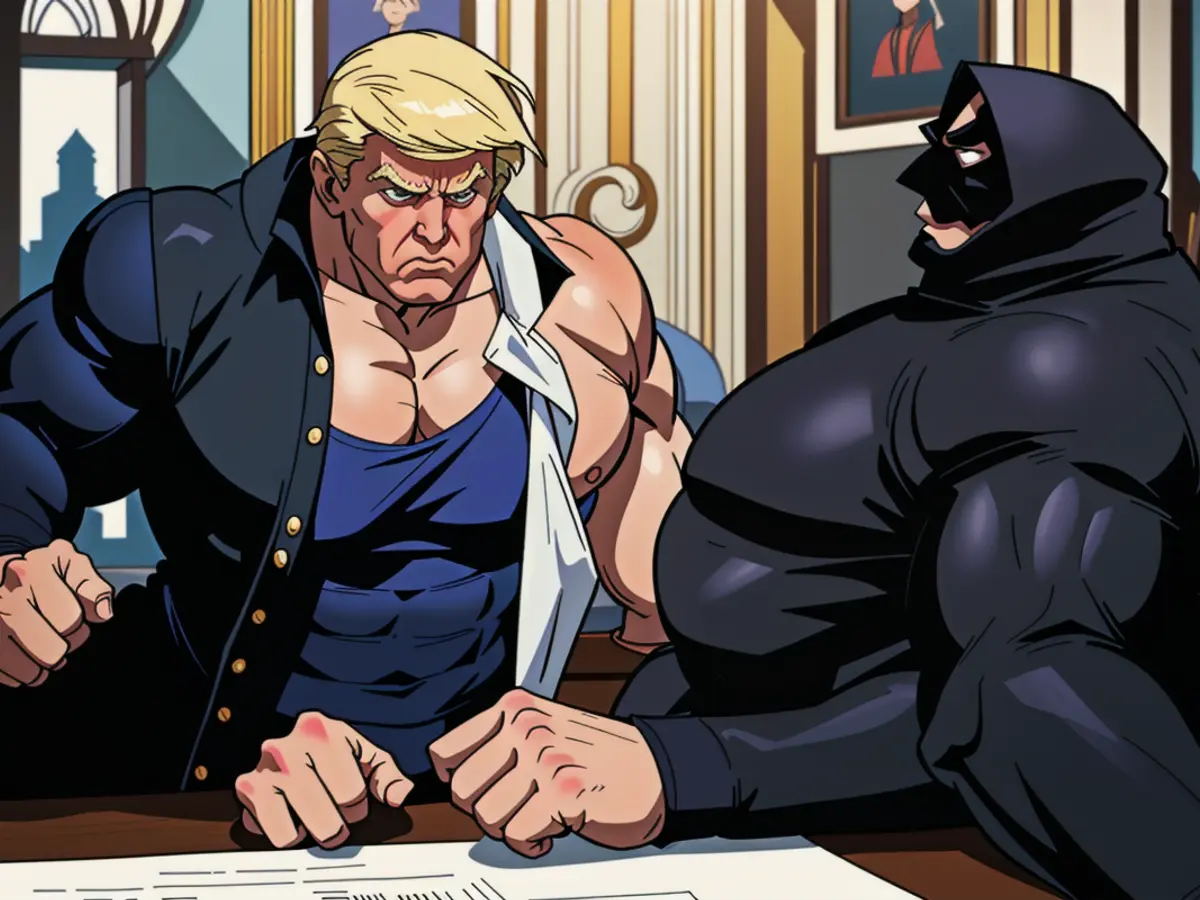The Contentious Group Chat Scandal: Flame Emojis and Military Secrets
- ~ 3 Min Read
Military Strike Threat through Emoji: U.S. Secretary of State Addresses Controversial Group Chat Incident - US Secretary of State responds to leaked chat controversy
The U.S. Congress is under pressure to explore a questionable communication fiasco, where a prominent journalist seemingly had access to a secretive group chat discussing an impending military action in Yemen. Minority Leader of the Democrats in the Senate, Chuck Schumer, spoke on platform X about "reckless behavior" and demanded a thorough investigation. According to The Hill and ABC, Schumer described the situation as "one of the most spectacular military secrets breaches" he had ever witnessed.
What Happened?
Prominent government figures exchanged information about the then-pending attack on the Houthi militia in Yemen via the Signal messaging app in a private group conversation. The editor-in-chief of esteemed U.S. publication, The Atlantic, Jeffrey Goldberg, was accidentally included in the group and publicly disclosed the incident.
Official spokesperson for the National Security Council, Brian Hughes, acknowledged the authenticity of the group chat log. He announced an internal investigation.
Political Reactions
Democratic Senator and military expert Jack Reed said "if this story is true, it symbolizes one of the most flagrant operational security and common sense lapses that I've ever seen".
Military operations must be carried out discreetly and through authorized secure communication channels, stated Reed. "The negligence demonstrated by the Trump administration is astounding and risky. I'll demand answers from the government immediately."
Former Democratic presidential candidate Hillary Clinton shared an article from The Atlantic on X and commented, "Is this a joke?" Trump's repetitive accusations against Clinton during the 2016 election campaign concerning private email usage and security violations come to mind.
Regulations regarding confidential and top-secret information affecting national security, especially details about foreign military operations, are typically stringent. The Signal app is unapproved for secure information exchange by the U.S. government, as per The Atlantic.
Military Deployment Plans and Flame Emojis
Goldberg provides a detailed account of the chat exchanges – with exact times and original quotes – in his article. Military strategies and political discussions surrounding the planned strike against the Houthi militia in Yemen are both depicted.
Goldberg lists key participants in the chat, including Vice President JD Vance, Defense Minister Pete Hegseth, Secretary of State Marco Rubio, and other cabinet members and high-ranking government officials.
The article also emphasizes the casual tone of the chat protagonists in a military setting. Goldberg mentions that Trump's National Security Advisor Michael Waltz, who allegedly added him to the group, used emojis like a clenched fist, an American flag, and a flame symbol to express approval and combat spirit.
Digging Deeper: Two hours before the attacks on March 15, Hegseth purportedly provided extensive details about targets, weapon systems, and the timeline of the operation in the chat. This information was followed by air strikes aimed at Houthi militia positions in Yemen soon after.
Goldberg admitted that he initially doubted the group chat's validity, but gradually became convinced it wasn't a fabricated story.
Pete Hegseth Downplays Scandal: "No One Texted War Plans"
Hegseth vehemently denied The Atlantic report, stating to a reporter upon landing at the Hawaii airport, "No one texted war plans". The ex-host of the right-wing conservative Fox News channel criticized Goldberg as a "dishonest and discredited journalist" who makes a career out of running smear campaigns against the government and frequently spreading false news.
Hughes' statements contradict Hegseth's dismissals, as he described the chat history as "highly likely authentic".
Donald Trump previously stated that he hadn't heard about the group chat but held a dim view of The Atlantic magazine. Trump also shared a tweet from his ally Elon Musk, suggesting that the best place to hide a body was on The Atlantic's second page, since no one ever looks there.
Pete Hegseth
- Group chat
- Defense Minister Pete Hegseth
- Donald Trump
- Jeffrey Goldberg
- Defense Minister Pete Hegseth, a key participant in the group chat, vehemently denied The Atlantic's report, claiming that no war plans were texted in the chat.
- Journalist Jeffrey Goldberg described the group chat, which included Defense Minister Pete Hegseth, as one of the most spectacular military secrets breaches he had ever witnessed.
- In the group chat, two hours before the attacks on March 15, it is reported that Hegseth provided extensive details about targets, weapon systems, and the timeline of the operation.











